August 21, 2018 •
Sen. Warren Introducing Comprehensive Lobbying and Ethics Bill
On August 21, Sen. Elizabeth Warren is introducing a 289-page bill with various changes to federal lobbying and ethics laws. Among the changes included in the “Anti-Corruption and Public Integrity Act” are an expanded definition of “lobbyist”. The new definition […]
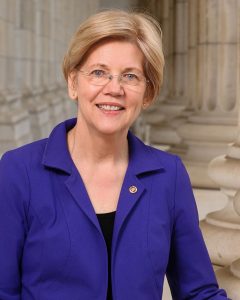 On August 21, Sen. Elizabeth Warren is introducing a 289-page bill with various changes to federal lobbying and ethics laws.
On August 21, Sen. Elizabeth Warren is introducing a 289-page bill with various changes to federal lobbying and ethics laws.
Among the changes included in the “Anti-Corruption and Public Integrity Act” are an expanded definition of “lobbyist”. The new definition covers individuals employed for compensation making at least one lobbying contact or engaging in lobbying activities that do not include making lobbying contacts. The bill creates the definition of “corporate lobbyist”, which are lobbyists compensated by for-profit entities and 501(c)(6) organizations like chambers of commerce, but does not include other 501(c) entities or political organizations.
Reporting by lobbyists would expanded to include disclosure of specific bills, policies, and governmental actions attempted to be influenced, meetings with public officials and documents provided to those officials.
The bill permanently bans all foreign lobbying by both foreign actors and American lobbyists. American lobbyists would be prohibited from accepting money from foreign governments, foreign individuals, and foreign companies to influence United States public policy.
Other changes include a life-time ban on lobbying by former presidents, vice presidents, cabinet secretaries, members of Congress, and federal judges. All other federal employees would be banned from lobbying their former office, department, agency, or Congress after leaving their position until the end of the Administration, but for no less than two years or at least six years for corporate lobbyists. The bill prohibits companies from immediately hiring senior government officials from an agency or office recently lobbied by that company. The law similarly would prohibit large companies, measured by annual revenue or market capitalization, from hiring former senior government officials for four years after they leave the government.
Additionally, lobbyists would be prohibited from making political contributions to candidates or members of Congress, giving gifts to the executive and legislative branch officials being lobbied, and from working for any contingency fee.
The bill also contains changes to the federal rule-making process, expands the open record laws, creates ethics requirements for the judicial branch, including the Supreme Court, and creates an independent U.S. Office of Public Integrity for enforcement. An additional part of the bill addresses conflict of interest laws for federal office holders and employees, including a ban on stock ownership, while in office or employed, by members of Congress, federal judges, and White House staff and senior agency officials.
Also, the legislation includes the “Presidential Conflicts of Interest Act”, which requires sitting presidents and vice presidents to place conflicted assets into blind trusts to be sold.
July 30, 2018 •
Legislation Introduced to Amend Federal Lobbying Law
On July 25, Sen. Michael Bennet and Rep. John Sarbanes introduced legislation aimed to make several changes to the Lobbying Disclosure Act of 1995 (LDA). Currently, part of the LDA’s requirements for determining whether an individual is required to register […]
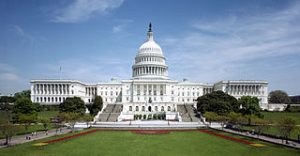 On July 25, Sen. Michael Bennet and Rep. John Sarbanes introduced legislation aimed to make several changes to the Lobbying Disclosure Act of 1995 (LDA).
On July 25, Sen. Michael Bennet and Rep. John Sarbanes introduced legislation aimed to make several changes to the Lobbying Disclosure Act of 1995 (LDA).
Currently, part of the LDA’s requirements for determining whether an individual is required to register as a federal lobbyist include if he or she makes two or more lobbying contacts and if his or her lobbying activities constitute at least 20 percent of the individual’s time in services for a client over any three-month period. The proposed legislation, introduced as two identical bills in both houses of Congress as Senate Bill 3274 and House Bill 6533, would require registration if a lobbyist makes more than one lobbying contact over a two-year period and would eliminate the 20 percent time threshold used in determining whether registration is required.
This bill would also require individuals who provide paid strategic advice in support of a lobbying contact with a government official to register as lobbyists even if they do not directly make the contact, prohibit lobbyists from soliciting, bundling or providing campaign contributions above a total equal to an individual’s campaign contribution limit, and prohibit members of Congress, senators, and candidates for Congress or the Senate from soliciting campaign contributions from lobbyists when their respective bodies are in session.
Additionally, the legislation would no longer permit foreign agents from avoiding registration under the Foreign Agent Registration Act (FARA) by registering under the LDA.
More information is available from the press releases of Sen. Bennet and Rep. Sarbanes, and from a policy summary of the Democracy Reform Task Force, of which Sarbanes is the Chairman.
November 1, 2017 •
Legislation Introduced in U.S. Congress to Strengthen FARA Enforcement
On October 31, identical bills were introduced in both houses of the U.S. Congress to strengthen the laws and penalties concerning lobbyists serving as the agents of foreign principals. Senate Bill 2039 and House Bill 4170 amend the Foreign Agents […]
 On October 31, identical bills were introduced in both houses of the U.S. Congress to strengthen the laws and penalties concerning lobbyists serving as the agents of foreign principals.
On October 31, identical bills were introduced in both houses of the U.S. Congress to strengthen the laws and penalties concerning lobbyists serving as the agents of foreign principals.
Senate Bill 2039 and House Bill 4170 amend the Foreign Agents Registration Act of 1938 (FARA) in order to provide the U.S. Attorney General with greater authority to investigate alleged violations of FARA and bring increased criminal and civil actions against persons committing such violations.
If the legislation passes, an exemption from registering and filing disclosure reports under FARA established in Lobbying Disclosure Act of 1995 would be eliminated. Additionally, the Department of Justice would be empowered to demand documents and testimony when investigating alleged violations of compliance.
The pair of bills were introduced by Sen. Chuck Grassley and Rep. Mike Johnson.
September 15, 2017 •
Recognizing the 10-Year Anniversary of HLOGA—Cheers
The Honest Leadership and Open Government Act (HLOGA) of 2007 was enacted 10 years ago. It is a law of the US federal government, which in part, amended parts of the Lobbying Disclosure Act (LDA) of 1995. What did it […]
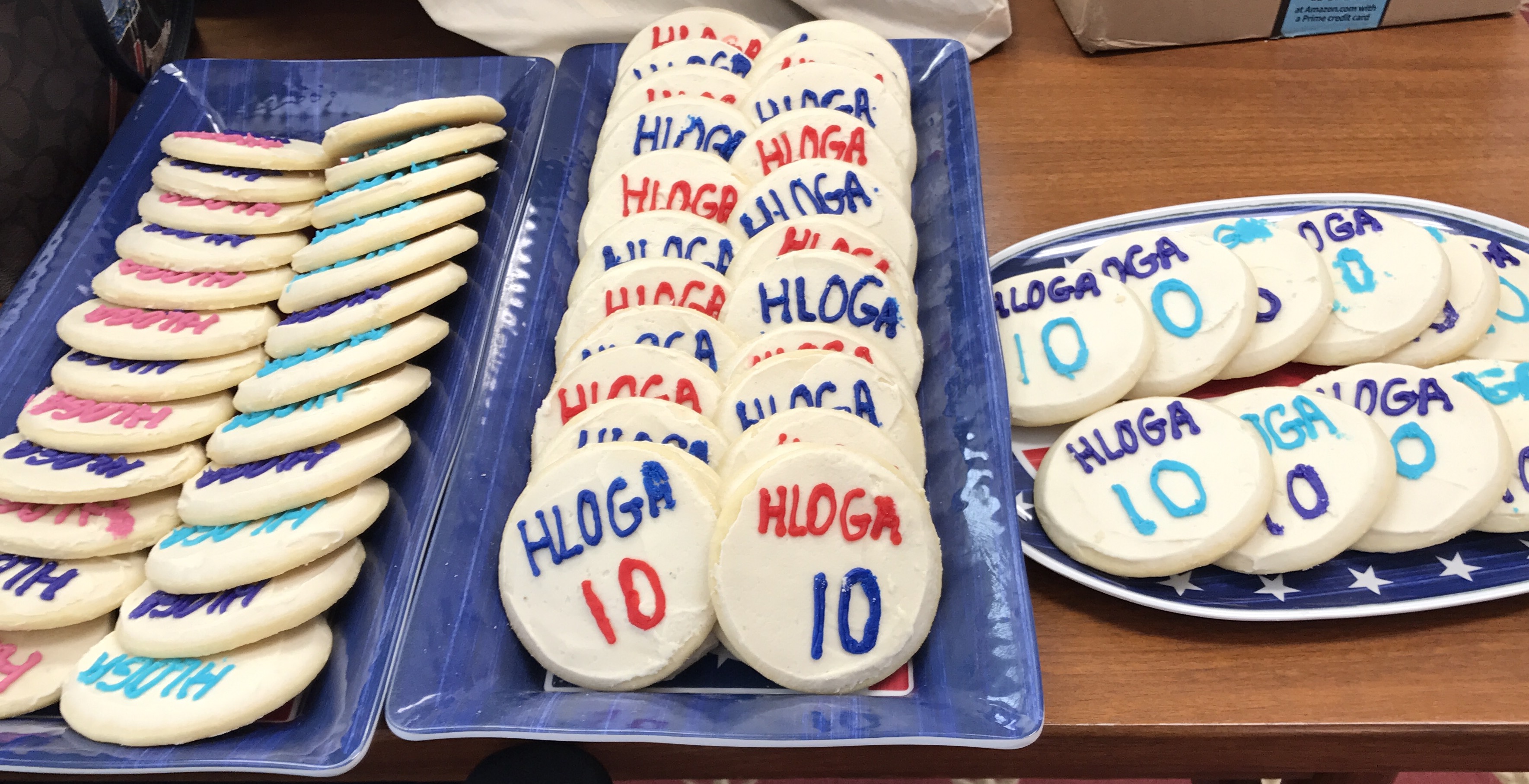 The Honest Leadership and Open Government Act (HLOGA) of 2007 was enacted 10 years ago. It is a law of the US federal government, which in part, amended parts of the Lobbying Disclosure Act (LDA) of 1995.
The Honest Leadership and Open Government Act (HLOGA) of 2007 was enacted 10 years ago. It is a law of the US federal government, which in part, amended parts of the Lobbying Disclosure Act (LDA) of 1995.
What did it do? For one, it strengthened the public disclosure requirements regarding lobbying activity and placed restrictions on gifts. The bill was signed into law by President George W. Bush on September 15, 2007.
In addition, it closed the revolving door for many people in the federal government from lobbying for a certain period of time; it increased the number of reports due a year—from twice a year to four times a year; it prohibited Members of Congress from attending parties held in their honor at national party conventions—if they were sponsored by lobbyists; requires candidates, other than those running for a seat in the House, pay the fair market value of airfare (charter rates) when using non-commercial jets to travel; requires candidates for the House to not use non-commercial aircraft; requires lobbyists to certify they have not given gifts or travel that would violate Senate or House rules; requires the disclosure of businesses or organizations contributing more than $5,000 and actively participating in lobbying activities by certain coalitions and associations; instituted a lot of prohibitions between spouses who are registered lobbyists unless they were registered at least one year prior to the most recent election of the spouse to office; and requires entertainment and sports tickets be valued at market rates.
There is definitely more to HLOGA which affected lobbyists, Members of Congress, Cabinet Secretaries, senior Senate staff, and senior House staff. It is the #1 reason State and Federal Communications strengthened its federal presence in DC by bringing on Rebecca South, formerly from Blank Rome, and Gamble Hayden, formerly from PhRMA and Boehringer Ingelheim. Our FedALERTS program is the key to capturing the information needed for 100% compliance on the federal level.
Will there be changes in the future? Probably…In the meantime, we are celebrating HLOGA today at State and Federal Communications.
On March 17, two bills were introduced into the U.S. Congress requiring the disclosure of political intelligence activities. House Resolution 4809, The Political Intelligence Transparency Act, was introduced by Rep. Louise McIntosh Slaughter and Rep. John J. Duncan. This bill […]
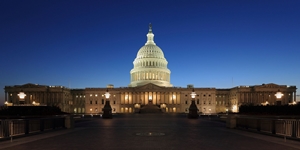 On March 17, two bills were introduced into the U.S. Congress requiring the disclosure of political intelligence activities.
On March 17, two bills were introduced into the U.S. Congress requiring the disclosure of political intelligence activities.
House Resolution 4809, The Political Intelligence Transparency Act, was introduced by Rep. Louise McIntosh Slaughter and Rep. John J. Duncan. This bill would subject individuals engaged in political intelligence to the same regulations and requirements as lobbyists, according to Slaughter’s press release. The bill amends the Lobbying Disclosure Act (LDA) by requiring registration and reporting of activities and imposes revolving door restrictions for members of Congress, executive branch officials, and their staff. An exemption exists in the bill for members of the media.
Sen. Chuck Grassley introduced Senate Bill 2738, a different bill also amending the LDA to require disclosure of political intelligence activities.
Photo of the United States Capitol by Martin Falbisoner on Wikimedia Commons.
December 2, 2014 •
Ask the Experts – LD-2 Reports and Nondeductible Lobbying Expenses for Federal Income Taxes
Q. For federal income tax purposes, our organization has been using the aggregate amounts reported on our quarterly LD-2 lobbying activity report as our nondeductible lobbying expenses. Can the expenditures we compile for LDA reporting be used interchangeably for tax […]
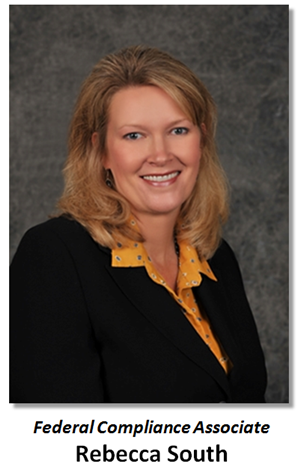 Q. For federal income tax purposes, our organization has been using the aggregate amounts reported on our quarterly LD-2 lobbying activity report as our nondeductible lobbying expenses. Can the expenditures we compile for LDA reporting be used interchangeably for tax purposes?
Q. For federal income tax purposes, our organization has been using the aggregate amounts reported on our quarterly LD-2 lobbying activity report as our nondeductible lobbying expenses. Can the expenditures we compile for LDA reporting be used interchangeably for tax purposes?
A. In a word: maybe – It depends on the method of LDA reporting you’ve opted to follow. If you file your LD-2 report using the IRC definitions (method C), then the number you compile and report on your LD-2 can be used interchangeably for tax purposes. However, if you compile and report your quarterly lobbying expenditures using LDA definitions (method A), the results will not accurately reflect nondeductible lobbying expenses as defined by the IRS. Because the definition of “lobbying” differs between the LDA and the IRC, the two compilation methods will produce very different results. If you use LDA definitions to compile your quarterly LD-2, your organization must employ a second process by which to determine your nondeductible lobbying expenses for tax purposes. A lobbying registrant can determine each year which method they will use to compile the LD-2 report. Once a method has been selected, a registrant must use that method for all four quarterly reports during that year.
You can directly submit questions for this feature, and we will select those most appropriate and answer them here. Send your questions to: experts@stateandfed.com.
(We are always available to answer questions from clients that are specific to your needs, and we encourage you to continue to call or e-mail us with questions about your particular company or organization. As always, we will confidentially and directly provide answers or information you need.) Our replies to your questions are not legal advice. Instead, these replies represent our analysis of laws, rules, and regulations.
June 16, 2014 •
Ask the Experts – LDA Tracking and Reporting
Q. To streamline LDA tracking and reporting, our company includes 100 percent of our in-house lobbyists’ compensation as lobbying on our quarterly report. Is this a reasonable approach? A. The LDA does not contain any special tracking requirements for reporting […]
 Q. To streamline LDA tracking and reporting, our company includes 100 percent of our in-house lobbyists’ compensation as lobbying on our quarterly report. Is this a reasonable approach?
Q. To streamline LDA tracking and reporting, our company includes 100 percent of our in-house lobbyists’ compensation as lobbying on our quarterly report. Is this a reasonable approach?
A. The LDA does not contain any special tracking requirements for reporting expenditures. Registrants employing in-house lobbyists are required to provide a “good faith estimate of the total expenses” of their lobbying activities. With the “good faith” standard as the back drop, an organization should determine whether including 100 percent of their lobbyists’ compensation meets that standard. Aside from the tax implications of including 100percent of compensation, typically, there is some time that is spent during the course of a quarter that is not defined as lobbying and varies from month to month depending on what issues are being addressed. Therefore, providing a good faith estimate, in most cases, will require a registrant to implement some sort of tracking process to meet the standard. In the event of an audit, the ability to demonstrate reasonable efforts to track and capture lobbying activity, and only lobbying activity, is an additional benefit.
You can directly submit questions for this feature, and we will select those most appropriate and answer them here. Send your questions to: marketing@stateandfed.com.
(We are always available to answer questions from clients that are specific to your needs, and we encourage you to continue to call or e-mail us with questions about your particular company or organization. As always, we will confidentially and directly provide answers or information you need.) Our replies to your questions are not legal advice. Instead, these replies represent our analysis of laws, rules, and regulations.
On March 13, a bill was introduced in the U.S. House of Representatives requiring increased disclosure from lobbyists and public officials. U.S. Rep. Mike Quigley introduced the Transparency in Government Act. The act, House Resolution 4245, makes several changes to […]
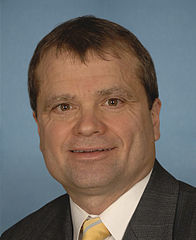
On March 13, a bill was introduced in the U.S. House of Representatives requiring increased disclosure from lobbyists and public officials. U.S. Rep. Mike Quigley introduced the Transparency in Government Act.
The act, House Resolution 4245, makes several changes to the current Lobbyist Disclosure Act (LDA), including:
- Establishing the Lobbyist Disclosure Enhancement Act;
- Removing references to the IRS definition of lobbying, leaving only the LDA definition of lobbying;
- Changing the requirement for lobbyist registration by removing the current 20 percent work time threshold; and
- Requiring:
- Lobbyists to report political contributions quarterly rather than semiannually;
- Lobbyists to complete ethics training within six months of being hired and once every five years thereafter;
- Lobbyists to register within 10 days, rather than 45 days, of making a lobbying contact;
- Organizations that hire a lobbyist intending to make more than one lobbying contact to register; and
- The clerk of the House and the secretary of the Senate to develop a system that assigns an identification number to each lobbyist.
The bill also amends the Freedom of Information Act and makes other changes regarding disclosure and transparency in federal contracting and the three branches of federal government.
In his press release, Quigley states, “The Transparency in Government Act shines a light on every branch of the federal government, strengthening our democracy and promoting an efficient, effective and open government.”
Photo of U.S. Rep. Mike Quigley courtesy of the U.S. House of Representatives website on Wikimedia Commons.
State and Federal Communications, Inc. provides research and consulting services for government relations professionals on lobbying laws, procurement lobbying laws, political contribution laws in the United States and Canada. Learn more by visiting stateandfed.com.

